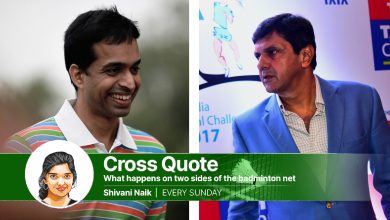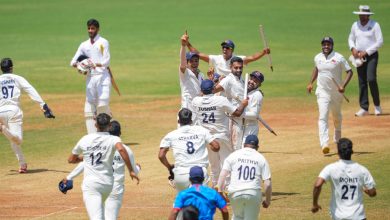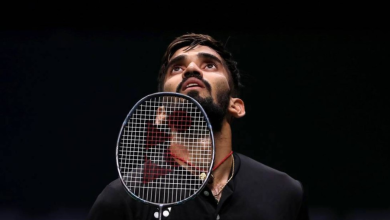BCCI was waiting for weather to change, says reform panel head Lodha

FORMER CHIEF Justice of India R M Lodha, who headed a Supreme Court-mandated panel that recommended a series of reforms in Indian cricket adminration six years ago, described the contentious cooling-off clause in the BCCI constitution as a “snow mountain” that cricket adminrators navigate “waiting for the weather to change”.
Speaking to The Indian Express on Wednesday, after the Supreme Court allowed the BCCI to amend the cooling-off period for the board’s office-bearers, Justice Lodha said: “For cricket adminrators, the cooling-off clause was like a snow mountain, which they find very difficult to navigate, so they just wait for the weather to change. This is how it has been happening since 2016, 2018 and now 2022.”
In the wake of the IPL spot-fixing scandal of 2013 and the subsequent conflict-of-interest allegations against cricket adminrators, the Supreme Court, based on the Lodha Committee report, had passed an order in 2016 that mandated BCCI officials to have a fixed tenure of one term (of three years) followed a cooling-off period of three years.
Since then, however, the Indian board has repeatedly opposed the clause. Based on a BCCI plea, which has been heard several Supreme Court panels, the clause was watered down in 2018 to allow BCCI office-bearers two terms — a total of six years, including a term in a state unit — before the cooling-off period starts.
With the Indian board continuing to pursue the case, the latest Supreme Court order gives cricket adminrators an unbroken combined stint of 12 years in state units and the BCCI.
Asked about the latest order, Justice Lodha said the Supreme Court in its “wisdom had done what was right” as it might have found that “earlier orders fundamentally erroneous” and “thought that continuity of office-bearers was more important than the finality of the judgment”.
However, he said: “If you want to apply the element of continuity, why even 12 years? If continuity is paramount and it overrides everything then why fix cooling-off at all. Why 6, 9 or 12 years…,” he said.
Detailing the reasons why his committee wanted cricket officials to take a break after every three-year term, he said, “Our idea of a cooling-off period was based on two facets — it would stop the creation of a monopoly and it would bring new blood into the adminration. Cooling-off is a very important limb of the governance structure to eradicate the formation of a monopoly. If you give a long tenure, it is bound to create a monopoly in favour of a few individuals. It is founded on a well accepted principle of governance in almost all fields, and sports is one of them.”
Lodha also pointed out that his committee’s report was accepted “threadbare” the Supreme Court. “Our report was vindicated when the Supreme Court passed its first order on July 18, 2016, accepted the idea, and the formalisation of the cooling-off clause was done. So it is not that we were off the mark or that our report was absurd. In the first hearing, they accepted our report threadbare and accepted this clause. Later, it was tweaked the August 9, 2018, order. Maybe, now they think it is right to change again,” he said.
The former CJI also pointed to the circumstances in which the apex court had to intervene in cricket affairs.
Following the Justice (retired) Mukul Mudgal probe into the 2013 scandal, the Supreme Court appointed the Lodha Committee to suggest structural changes that would provide checks and balance in the smooth running of cricket in the country. The investigation in the spot-fixing case and court proceedings had suggested that conflict of interest was at the root of many ills in the BCCI since one of the accused was Gurunath Meiyappan, the son-in-law of BCCI old hand and IPL franchise owner N Srinivasan.
“One has to actually look at the background in which the Supreme Court interfered in the BCCI’s affairs. It was very visible and apparent that the same people were holding office time and again. Besides, there were other things that were happening around that the court noticed. We are asked to look into the constitution and structure. After meeting many people, we found out that there were certain fundamental grievances concerning good governance. There was this demand to stop the monopoly of the few in charge,” Lodha said.







